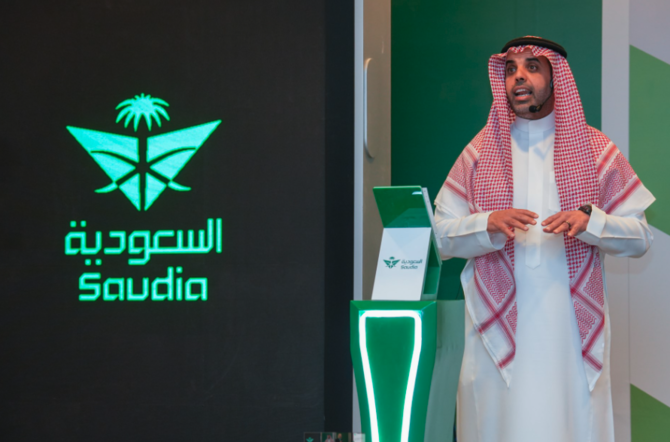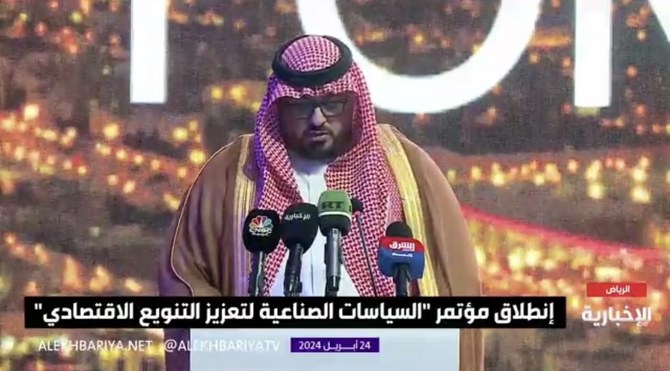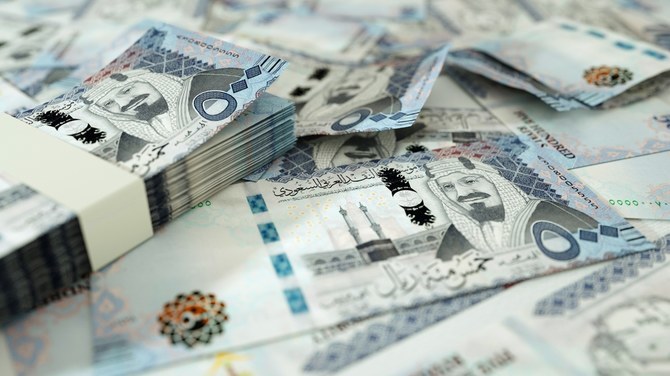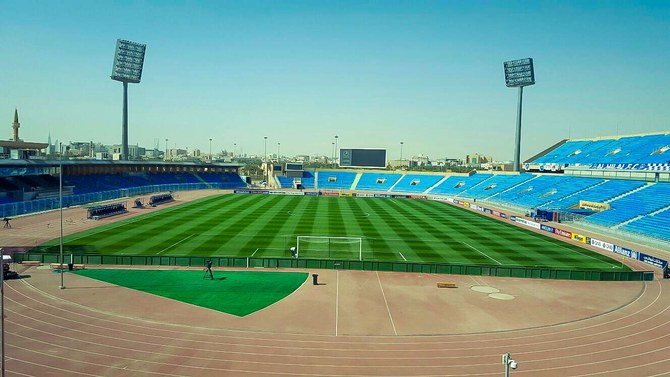What a difference a pandemic makes. At the turn of 2020, Fabrice Susini, CEO of Saudi Real Estate Refinance Company (SRC), could look back on two years of significant progress toward the provision of affordable home ownership for the Kingdom’s aspirational young population.
Increased property ownership was one of the main aims of the plan to diversify the Saudi economy away from oil dependency, setting a target of 70 percent home ownership by 2030.
It was all going to plan. New mortgage issuance had been “staggering,” Susini said, and SRC had reached its target of facilitating 60 percent home ownership with months to spare.
“It was a very positive story,” he said, allowing him to work on the next phase of Saudi Arabia’s move toward being a home-owning economy — buying more mortgage portfolios from banks and other mortgage originators, injecting more liquidity into the housing market via domestic and international sukuk issuance, and offering new long-term fixed-rate mortgages to potential and actual home owners.
The economic lockdown that took increasing effect from March has changed the figures on which those plans were based. New mortgage applications, which has been running between SR20 million ($5.3 million) to SR50 million per week, dropped into single-digit millions as potential buyers were forced to stay at home rather than go viewing properties and took stock of their spending plans in light of the economic downturn that followed the pandemic outbreak.
“We expect to report a sharp drop for April and May. I would be surprised if the numbers remain the same,” Susini said. “But the fundamentals remain the same. It is still an underserved market, compared with the demands and needs of the young, dynamic population aspiring to home ownership. The process may be slowed by a couple of months, but the demographic is still there. There will be a slowdown but I’m sure a catch-up is coming and the forward movement will resume.”
One reason for his optimism is the action taken by the financial authorities to support the economy in its hour of need, especially the stimulus packages unveiled by the Saudi Arabian Monetary Authority (SAMA) and the Finance Ministry.
“There has been a lot of support coming through for small to medium businesses and private companies, and that will balance and smooth out the process. I don’t see a big hit coming,” he said.
Effective monitoring and control of SAMA liquidity injections would ensure they reached the SME and private sector organizations they are mainly intended to help, he added.
“I’d be very surprised if any significant proportion was not properly channeled to the private sector and SMEs,” he said.
BIO
BORN: Rome, 1964
EDUCATION:
- Law degree, Paris X Nanterre University, France
- Banking and finance degree, Sciences Po, Paris
- Master’s degree, finance, Dauphine University, Paris
- MBA, London Business School
CAREER
- Relationship manager, Societe Generale
- Analyst, Bayerische Landesbank
- Global head of securitization, BNP
- CEO, Saudi Real Estate Refinance Company
The mortgage industry in Saudi Arabia enjoys significant subsidies from the government for its products, and while some of these have been changed in recent week, reducing subsidies to mortgages for military and some civilian personnel, he does not see this as the beginning of a trend to remove subsidies for mortgages in the broader scope of SRC’s business.
“There is no danger to mortgage subsidies that I am aware of. The budget has been carried out, the resources are there. But of course we want to make sure that every riyal of subsidy is used to its most effective extent,” Susini said.
“When we saw the situation was becoming more challenging, the SAMA package was a great help by injecting liquidity into the financial system, but we also wanted to be more proactive ourselves in the relationship we have with our borrowers and our partners. We didn’t just want to wait until people were actually in difficulties before we acted,” he added.
The result was the “forbearance” plan for borrowers, by which SRC asked its mortgage partners to offer a three-month mortgage holiday to those who felt the need, and many took up the offer. “A big majority has gone for it. We see ourselves as a ‘citizen’ company and we do not just want to rely on the authorities. We asked ourselves what we can do in terms of citizenship and public policy initiatives,” Susini said.
There seems little prospect of a cascade of mortgage defaults as long as the current policy of government support continues, and SRC and mortgage originators persist with the policy of showing patience and understanding in difficult economic circumstances.
Nonetheless, prospective home owners are facing big challenges. Not only has the lockdown made the market mechanics of home-buying more difficult, with viewings almost impossible in the light of curfews and travel restrictions, but there is also the question of whether people will hesitate over such a life-changing decision. Will they want to buy a house or apartment while the pandemic continues to rage?
Susini thinks customers will learn to prioritize their financial decisions more carefully. “You might defer the purchase of a new car, but still want to buy a home. You would direct your choice toward those things you regard as more important. Home ownership is probably regarded as more essential,” he said.
The appetite of Saudi citizens for house purchase in the new circumstances will be better judged when SAMA and other financial bodies publish official figures in the near future, he said.
With regard to the overall health of the real estate market, Susini said that he has not seen a significant fall in property prices, but underlines the fact that SRC caters mainly for the affordable segment of the market, where big falls in value are less likely. He noted that apartments have been holding their value “quite well” in comparison with bigger units like townhouses and villas.
In an era when global interest rates are falling toward zero in many parts of the world, there could be an incentive for customers to go for the long-term fixed-rate deals SRC is offering.
“We’re seeing the need for more awareness of the benefits of fixed rates. Borrowers can grasp the benefit of remortgaging at rates that are significantly lower now than they were before. It is a choice for the borrower really. They can either own their home more quickly than before, or maintain their payments on more sensible terms. It can be beneficial for them whether rates are subsidized or not,” he said.
SRC reduced its lending rates for long-term fixed mortgages last month, is first cut this year following two rate reductions in 2019. Borrowers could now take advantage of a 5 percent rate on a 25-year mortgage, Susini said.
SRC is also working hard on the digital space, with online facilitators becoming more crucial to home purchase. The company is in the early stages of a study on fintech and digital mortgage origination, and some initiative could be forthcoming by the summer, he said.
“If you can talk of a silver lining from the current situation, it is that it is accelerating the digitization of financial processes. The payment processes are already quite well developed, but the sale of processes presents more of a challenge. The health ministry has organized some innovative processes around the digital market place, and the justice ministry has done good work on the digital origination of contracts.”
The strategy of including mortgage originators in the SRC set-up will continue, and Susini is holding talks with financial and corporate firms to bring more products under its portfolio.
SRC is owned by the Public Investment Fund, the Kingdom’s $325 billion sovereign wealth fund, so it has access to finance at the highest level. But under Susini’s stewardship there has also been a willingness to raise money in local markets via domestic sukuk issues. Two have already been launched, and a third is lined up to take place in the summer.
After that, the company will be work on an international bond offering toward the end of the year, though he declined to say how much would be raised.
“We want to ensure we can continue to finance mortgages, to have sufficient tools and channels so that no bank or finance company is stopped from offering mortgages because of issues to do with capital ratios of liquidity,” Susini said.
He viewed recent downgrades by ratings agencies of banks’ creditworthiness or prospects as a “gray cloud” over liquidity.
“We want to be ready so that primary originators of mortgages have all the tools necessary to keep operating regardless of the problems they might face,” he added.




















